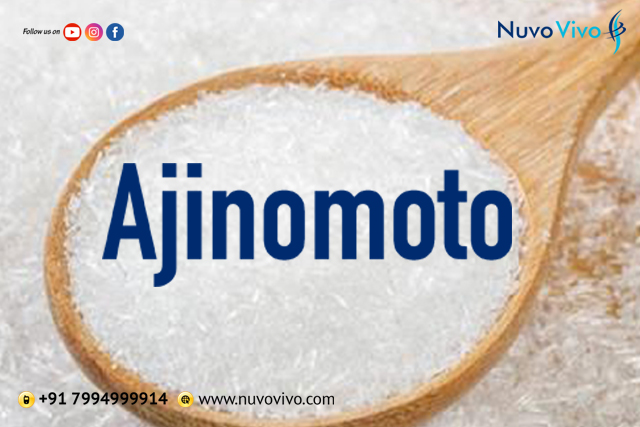Did you know that Ajinomoto is not a substance that is added to the food !??
Aji-no-moto is in-fact a Japanese FMCG company, and the phrase ‘Aji-no-moto’ means ‘Essence of Taste‘ in the Japanese language. What we popularly refer to as Ajinomoto is in-fact a salt called MSG (Mono Sodium Glutamate)
Like the Xerox (photocopier machine company) became synonymous with photocopying, Ajinomoto (Japanese Company) has become synonymous with Mono-Sodium Glutamate.
MSG gives a special aroma and taste to food. This taste sensation, known as ‘umami’ in Japanese, also called “savory” in English, is the 5th basic taste (other 4 being sweetness, sourness, bitterness, and saltiness). Umami or Savoury taste is the characteristic of broths (soups) & cooked meats; MSG is used to provide this taste and aroma in processed and Chinese food.
How is Ajinomoto made?
The starting ingredient is sugar cane or tapioca, potato, maize, or even rice. The sugar is fermented to glutamic acid (a type of amino acid) which is then crystallised (like table salt) and dried to Ajinomoto or monosodium glutamate. Ajinomoto is 12% sodium and 78% glutamic acid.
Health Impact
Ajinomoto is Generally Regarded As Safe (GRAS) by the FDA (Read http://bit.ly/2RUdeRA).
According to FDA – ‘An average adult consumes approximately 13 grams of glutamate each day from the protein in food, while intake of added MSG is estimated at around 0.55 grams per day‘
Thanks to many controversial reports of Ajinomoto being unsafe and unhealthy, FDA ordered the Independent scientific group Federation of American Societies for Experimental Biology (FASEB) to examine the safety of MSG in the 1990s. FASEB’s report concluded that MSG is safe!
However, several researches points to the ill effects of prolonged usage of Ajinomoto.
Since Aginomoto has sodium, it can be harmful to those with hypertension & anxiety and can cause high blood pressure & heart issues. Glutamic acid is also an excitatory neurotransmitter that is addictive.
Certain studies conducted on animals suggest that chronic monosodium glutamate (Ajinomoto) intake can cause kidney damage due to oxidative stress.
MSG is also found naturally in tomatoes, cheese, oyster, yeast extract, soy extracts, etc.
For those who are hypersensitive to MSG, it may cause headache, nausea, chest pain etc.
Bottom line – MSG remains controversial and it is best avoided. However, it is alright to consume food that has MSG in the prescribed quantity, once in a while, provided there is no hypersensitivity.

